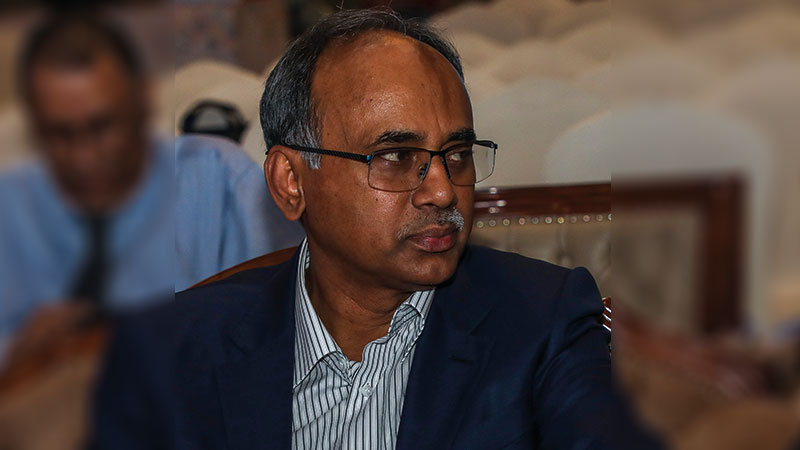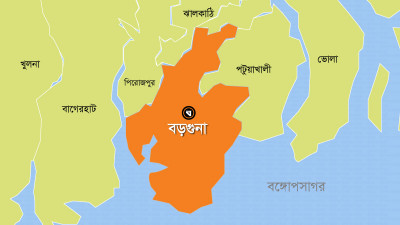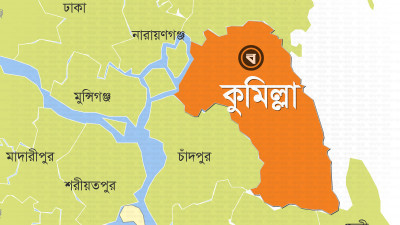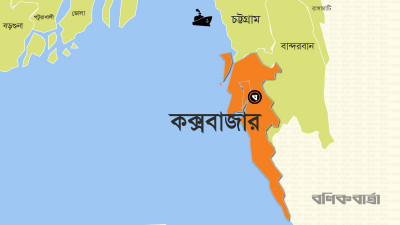 Abdur Rouf Talukder. Photo: File/Staff Photographer
Abdur Rouf Talukder. Photo: File/Staff Photographer One
of the most pivotal moments in Bangladesh's history was August 15, 1975. Bangabandhu
Sheikh Mujibur Rahman was assassinated along with his family in a bloody
military coup on that day. Following this tragic event, the ruling party, the
Bangladesh Krishak Sramik Awami League, or BaKSAL, was dissolved. During that
time, A.K.N. Ahmed served as the Governor of Bangladesh Bank. The Governor,
appointed by the Bangabandhu government, served till July 13, 1976. Even after
the fall of the government and the abolition of BaKSAL, A.K.N. Ahmed remained
in the post of governor for almost a year.
49
years later, on August 5, the government led by Sheikh Hasina, the daughter of
Sheikh Mujibur Rahman, was overthrown. Faced with a mass uprising by students
and citizens, the ousted Prime Minister fled to India. Abdur Rauf Talukder, the
governor appointed by the Awami League government, also went into hiding since
that day. Though the bank remained open for three days starting August 6,
Talukder never returned to his office. Eventually, from an undisclosed
location, the once-powerful Governor submitted his resignation to the Ministry
of Finance yesterday.
Abdur
Rouf Talukder was appointed as the 12th Governor of the central bank on July
12, 2022. Before this role, he was the Finance Secretary and had a long career
in the Ministry of Finance. He was known as a trusted bureaucrat under Prime
Minister Sheikh Hasina’s administration.
16
December 1971, the Victory Day, is considered as the foundation day of
Bangladesh Bank. Since its inception, 12 Governors have led the central bank.
Eight of them were government bureaucrats, while the remaining four were
academicians or bankers. A review of the history of those who held the
Governor’s office over the past 53 years reveals that Abdur Rouf Talukder is
the only one who vanished after a government’s downfall. None of the previous
11 Governors fled or felt compelled to resign after a regime change.
Former
Governors, economists, and banking executives have noted that Abdur Rouf Talukder
acted more as a partisan operative than as an independent central bank leader.
Many of his decisions were politically motivated, and he allegedly played a
role in enabling notorious criminals to loot bank funds. This has been cited as
the reason he lacked the courage to reappear after the government fell. Not
just in Bangladesh, it is questionable whether any central bank Governor in the
world has ever fled following a political upheaval.
Economist
Dr. Ahsan H. Mansur believes that “During Sheikh Hasina’s 15-year rule,
Bangladesh Bank could not operate independently. This has harmed the nation’s
economy. Public funds deposited in banks were looted. This lead to growing
discontent with the government. Had the central bank been allowed to function
independently, it would have ultimately benefited the government.”
Speaking
to Bonik Barta, Mansur added, “Previously, non-political individuals were
appointed as Governors of Bangladesh Bank. But this position has also been
politicized. The fact that the Governor fled after the government’s fall is a
disgrace for any country’s central bank.”
The
Eighth President of Bangladesh, Ziaur Rahman, was assassinated by members of
the military on May 30, 1981. Ten months later, on March 24, 1982, Lieutenant
General Hussain Muhammad Ershad seized power through a coup, imposing military
rule in the country. Despite the assassination of Ziaur Rahman and the
subsequent rise of Ershad, the position of the Governor of Bangladesh Bank
remained unchanged. M. Nurul Islam took over as the third Governor on July 13,
1976, and served for an uninterrupted 11 years until April 12, 1987. He is
remembered with respect for his role in the development of the banking sector,
policy formulation, innovations, and industrial growth. Under his leadership,
the introduction of back-to-back letters of credit (LCs) played a crucial role
in the expansion of the ready-made garment industry.
From
June 1996 to July 2001, the Awami League, led by Sheikh Hasina, was in power.
On November 24, 1998, economist and former bureaucrat Dr. Mohammed Farashuddin
was appointed as Governor. Even though the Awami League lost the 2001 election,
Farashuddin remained in office. The BNP-led coalition government, under Khaleda
Zia, assumed power on October 28, 2001. Dr.
Mohammed Farashuddin, after serving his full term, left office on November 22
of that year.
Dr.
Salehuddin Ahmed took office as the ninth Governor on May 1, 2005. He served
until April 30, 2009. Even though the Awami League returned to power on January
6 of that year, following their victory in the ninth national election, Dr.
Salehuddin Ahmed was able to complete his term as Governor despite the
political change.
Speaking
on the matter, a former Governor of Bangladesh Bank, who requested anonymity,
told Bonik Barta, “The central bank of any country is the ultimate refuge of
public trust. The Governor's position is also highly respected. I was also appointed
by a political government. But I never did anything during my tenure that would
force me to flee after a political shift. It is shameful that we now have to
hear about Governors going into hiding. The responsibility of the interim
government should be to ensure the complete autonomy of the central bank. The
Governor's position should also be elevated to a constitutional role.”
Since
taking office on July 12, 2022, Abdur Rouf Talukder had pledged to reform the
banking sector, control inflation, and address the reserves and dollar crises.
However, none of his promises or initiatives have come to fruition in the past
two years. Instead, public trust in the banking sector has eroded further, with
increased irregularities, corruption, and looting in both public and private
banks.
During
the announcement of his first monetary policy, Abdur Rouf Talukder had assured
that the dollar crisis would be resolved by December 2022 and reserves would
start to grow, the exchange rate would be left to market forces, and inflation
would be controlled. But two years later, none of these indicators have shown
any improvement.
According
to data from Bangladesh Bank, the country's gross foreign exchange reserves
stood at $41.82 billion on June 30, 2022. As of July 31 of this year, reserves
have plummeted to $25.92 billion. However, under international standards
(BPM6), the reserves are estimated at $20.48 billion, with usable or net
reserves hovering around $15 billion.
When
Abdur Rouf Talukder assumed the role of Governor in July 2022, the exchange
rate was BDT 93.45 per dollar. Currently, the dollar is trading at BDT 118,
while in the curb market (retail market), the rate exceeds BDT 125.
In
a press conference on August 4, 2022, shortly after taking office, Abdur Rouf
Talukder announced, “Bangladesh Bank has identified 10 weak banks. If they do
not improve, they will be merged.”
However,
without adequate preparation, Talukder initiated efforts to merge these
struggling banks earlier this year. Suddenly, there was an announcement to
merge the troubled Padma Bank with EXIM Bank. Then, it was said that the
state-run BASIC Bank would be merged with City Bank, and National Bank with
United Commercial Bank (UCB). None of these proposals materialized, but the
mere prospect of forced mergers sparked panic, leading customers to withdraw
their funds. This further exacerbated the liquidity crisis in the banking
sector.
To
control inflation, the cap on interest rates for loans, which was set at 9
percent, was lifted at the start of the last fiscal year. This caused interest rates
of bank loans to surge past 15 percent, yet inflation remained stubbornly high.
As recently as the month of June, the average inflation rate in the country
stood at 9.73 percent. Inflation has been above 9 percent for the past two
years.
Abdur
Rouf Talukder also eased rescheduling policies to underreport non-performing
loans (NPLs) in the banking sector. Previously, central bank approval was
required for rescheduling, but he delegated this authority to the lending
banks. As a result, banks rescheduled billions of taka in loans without
scrutiny, shielding their owners from default status. Yet, despite these
efforts, NPLs continued to rise. At the end of December 2022, NPLs in the
banking sector amounted to 1.2 BDT trillion. By March of this year, that figure
had surged past BDT 1.82 trillion. Experts now estimate that, including
rescheduled, written-off, and anonymous loans, the amount of risky loans could
be as high as BDT 6 to 7 trillion.
On
the condition of anonymity, a top executive of the country’s first-generation private
bank told Bonik Barta, “Abdur Rouf Talukder was excessively arrogant. He always
spoke with a sense of superiority. He frequently mistreated bank executives and
others in his interactions. But now, all his arrogance has crumbled to dust.
It’s disheartening to hear that the governor has fled.”
On
September 26, 2023, Bonik Barta published a report highlighting Abdur Rouf
Talukder's poor performance. Titled “India’s Governor gets an A Plus, Sri
Lanka’s Governor receives an A Minus; BB Governor Abdur Rouf Talukder receives
a ‘D’ Grade”. The article noted that Bangladesh Bank’s governor was assigned a
‘D’ grade in the Global Finance magazine’s ranking. The New York-based magazine
credited India's central bank governor Shaktikanta Das with an A+ grade for
successfully managing inflation and other key indicators. Meanwhile, Sri
Lanka’s governor, Nandalal Weerasinghe, earned an A- for guiding the country
out of bankruptcy and severe inflation. Even Pakistan’s central bank governor,
Jameel Ahmad, received a C- despite the nation’s economic turmoil. Since 1994,
Global Finance has graded central bank governors from around the world. The
magazine’s annual ‘Central Banker Report Card’ evaluates governors from 101
major countries, with the latest report published in 2023.
Attempts
to reach Abdur Rouf Talukder for comment on the matter were unsuccessful, as
his cell phone was switched off.
Regarding
the acceptance of the governor's resignation, interim government finance
advisor Dr. Salehuddin Ahmed stated at the Secretariat yesterday (August 10), “The
position of governor is sensitive. He has submitted his resignation letter, and
a decision will be made at tomorrow’s (Sunday) meeting. Bangladesh Bank’s laws,
or any national laws, are of sufficient international standard. But they are
not followed. Those responsible for enforcing such laws did not do so. And
those who should have adhered to them also failed.”






